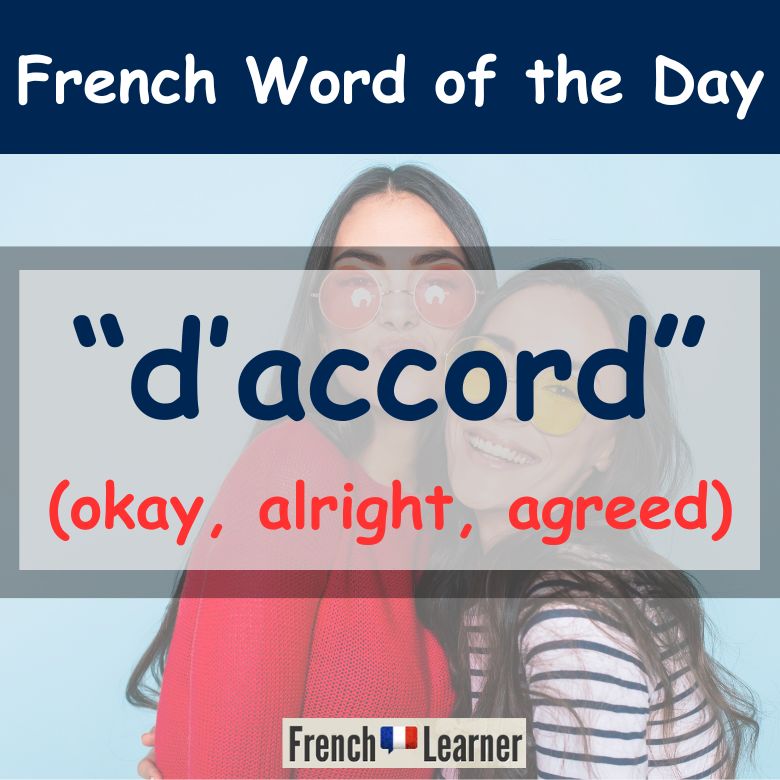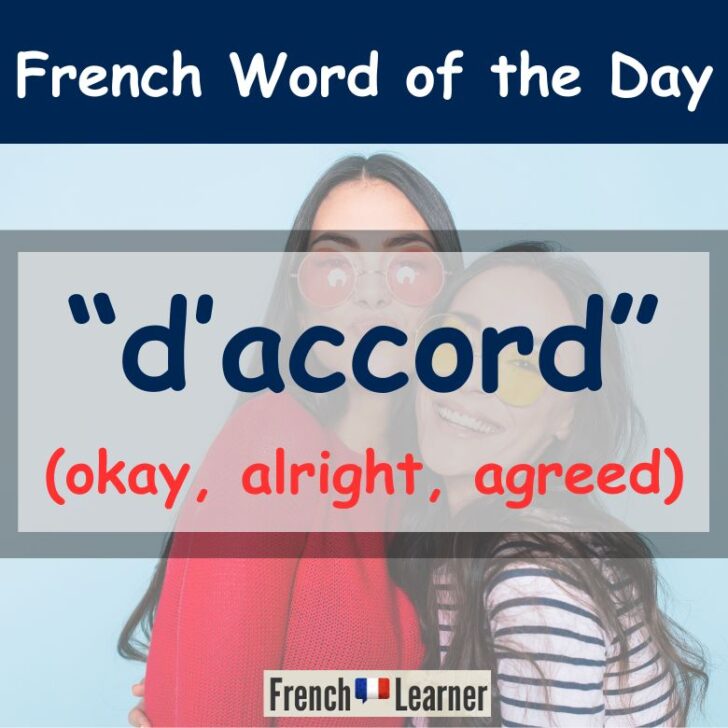The word, d’accord in French has several uses. With an exclamation mark, ‘D’accord!‘ translates to “okay” or “alright”. When combined with a conjugated form or être (to be), d’accord means to agree. For example, Je suis d’accord avec vous translates to “I agree with you”.
d’accord

D’accord
How to use d’accord in French
1. To be in agreement
There are several ways to use d’accord in French. The first and most common is être d’accord avec + person, which means to agree. The word that follows avec (with) can be a person’s name or stressed pronoun.
- Je suis d’accord avec vous. I agree with you.
- Désolé. Je ne suis pas d’accord avec vous. Sorry. I don’t agree with you.
When used in a question d’accord would look this example:
- Êtes-vous d’accord avec moi? Do you agree with me?

2. Ok, alright
There are also times when d’accord appears as a single word, meaning okay or alright.
- Person 1: D’accord? Okay/Alright?
- Person 2: D’accord! Okay! Alright!
3. To come to an agreement
Se mettre d’accord means to reach or come to an agreement. This is a bit more advanced.
- Après de longues discussions, Pierre et Marie se mettent d’accord. After long discussions, Pierre and Marie reach an agreement.
Common mistakes with d’accord
A very common mistake students make with d’accord is saying “c’est d’accord” to mean “okay” or “alright”. As stated above, the single word expression,“d’accord!” means okay or alright. The translation of “c’est d’accord” is “it’s agreed”.
Another common mistake is to say “d’accord !” to mean “I agree”. To express this, you absolutely must say “Je suis d’accord” (I agree).
Conclusion
Congratulations! You now know how to use d’accord in French. Now check out our lesson which explains French greetings in detail.
All French Word of the Day lessons


